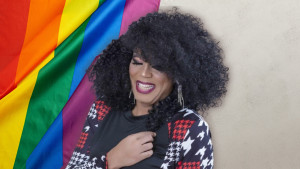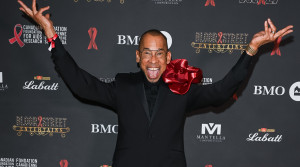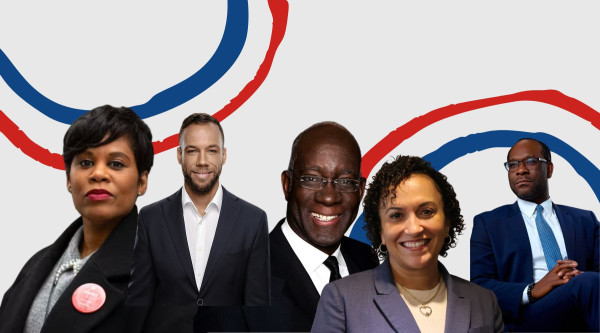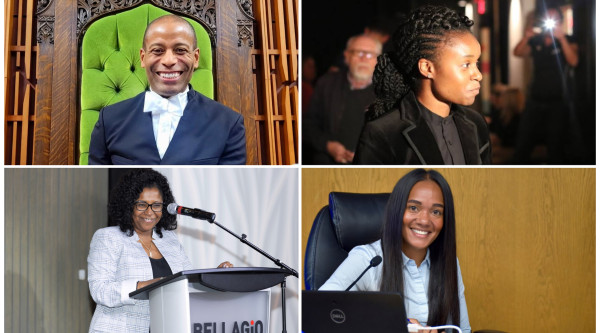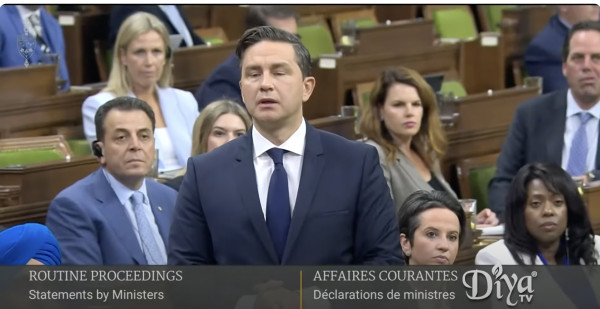Fergus has been involved in federal politics all of his adult life and was elected as Member of Parliament in 2015, representing Quebec’s Hull-Aylmer riding. Although he may not be well-known to the general public, Michael Coteau, the Member of Parliament (MP) for Don Valley East in Toronto, has known Fergus for years.
The two are connected as members of the Justin Trudeau-led Liberal Party, but they first met as students at Carleton University. As president of the Young Liberals of Canada from 1994 to 1996, Fergus was the only other Black Liberal in Ottawa that Coteau knew.
“So, for me to see Greg Fergus become the Speaker of the House and realize that everything he did before was all part of a trajectory to get to that point was extraordinary because I saw it from beginning to end,” says Coteau.
{https://twitter.com/TundeTASH/status/1709271742709919840}
Coteau describes Fergus as “one of the most decent, hardworking, honest, respectful people I know in politics” and says those qualities are obvious in all interactions with him and make Fergus an ideal person to be Speaker.
Fergus’ journey to becoming the Speaker is fuelled by his deep love of politics. When he was 14 years old, the self-described nerd subscribed to Hansard so he could read the daily transcripts of House of Commons debates, and later became a parliamentary page during his first year of university.
Fergus has given himself the lofty goal of restoring respect and decorum to debates in the House of Commons in his role as Speaker. Ultimately, he wants to leave Canadian politics in a better place than when he found it, including having more diversity across the political spectrum and at all levels of government.
What would you say to the 14-year-old version of Greg Fergus?
I would say to my 14-year-old self, who loved federal politics and wanted to one day be a Member of Parliament, “You have no date with destiny. Don't worry about it. It will come when it comes.” Which is the attitude I took very quickly. I always said that if I were to run for politics, I wanted to bring something unique to the game. I brought 46 years of experience to it. So, I would tell my 14-year-old self, “Don't worry. Take it easy. You're on the right track; it will come when it comes.”
Was being the Speaker something you ever thought about or were building towards?
No, the big leap was for me to become an MP. From there, if there was another role to play… it's all on the upside. But the fundamental, lifelong dream was to be an MP. It sounds like a great story because I was a page and a nerd who read these books [points to the books on his office cabinet] and small booklets I used to get in the mail. But really, this is the cherry on the sundae.
What do you make of the tradition of having the Speaker of the House dragged to down the aisle? What was going through your mind as it was happening?
I was smiling and attempting resistance, as per a long-standing tradition. In the distant past, being Speaker of the House of Commons was a dangerous job. The Speaker’s job entailed telling the ruling monarch what Members of the House of Commons thought. It could be dangerous or even deadly if the King or Queen didn’t like what they heard! Modern-day speakers have a tough job, but no harm will befall them when they take the chair. Speakers fake resistance out of respect for the traditions of Parliament, but I can say that I was especially proud to be elected by my fellow Members of Parliament to be their Speaker.
{https://twitter.com/angrezRCIC/status/1709382900859179191}
Why was being a Member of Parliament something you pursued and were interested in?
I made the connection from an early age that you can be useful to people through service, and I couldn't think of a better way to contribute than being all that I am, and bringing that to Parliament; it works somehow. There was a time when people used to say you have to be a lawyer, you have to be a man, and you have to be from a certain ethnic group but that's not true. You can bring yourself and be a Member of Parliament. And it's in that mix that you have people bringing different experiences, real experiences, that you get a Parliament that really is pretty fabulous.
{https://twitter.com/GregFergus/status/1704178406617760090}
What would you say to someone, specifically a Black person, who feels like this is not a system that reflects me, this is not a system that works for me or can get the things that are important to me done? What would you say to convince them there is a benefit to participating in the political process?
I would say cynicism is a luxury that few can afford, and I don't think anybody in our community can afford it. Look, we have a constitutional, small-L liberal democracy where the franchise is universal, the rights of the minority are protected against the tyranny of the majority, and we have the freedom to act, participate, and influence. Is the system perfect? No. There are a lot of faults in a system; for sure, I’m not pollyannaish. But given what generations have fought for to have our rights recognized, I think it's something that's worth pursuing because what's the alternative? Liberal democracies are robust on the one hand and extraordinarily fragile on the other.
If you look at the whole, wide swath of written history and you look at all the places where there were so-called democracies, and you didn't have anything close to the same kind of franchise that we have now. You had to be a certain race, gender, or a person from a particular family of wealth. Even if you call that democracy, if you look at all the times that we've had this kind of self-rule, it's popped up here and there, and over time, it's gone away and not necessarily popping back up in the same place.
We just got into the line, if I don't have the ability to be at the front of the line, I don't want to blow that all up and find myself back at the back of the line. Because usually, when these things get blown up, it's not because we're coming up with a more universal and accepting political system. It's often authoritarian, it's often focused on one kind of people. You just have to look around this Hill. Look through the 20th and 21st centuries so far, and you can see the alternatives, and it's never good news. So cynicism is a luxury we can't afford.
I say, if you think that the system is stacked against us – perhaps you're right, but I know that if we don't participate, nothing will change. If we do participate, you hold up the opportunity that things could change for the better. So I figured, “What do I have to lose?” That would be my argument to those people. Failure? We got that by doing nothing. So we might as well try and see what we get, but it takes a leap of faith.
Are you worried?
Yes. Not because of current circumstances, and I’m no great historian, but I've read enough, and I love politics enough to pay attention to this, that I've seen these things come and go. So I will do everything I can to pass this on to another generation because I can only be here temporarily because the state and politics will not die with me (laughs nervously), I hope. So I'm here for however long I'm here, and I hope that the next group can take it even further, but that means I have to do my job now to keep it going.
What was your reaction when you saw the pictures of Justin Trudeau in blackface that resurfaced a couple of years ago? Have you had any conversations with him afterward, and how did those go?
I can say on the record that I had conversations with him. The night before the story was going to break, he called me up, and we had a conversation that I won't talk about. But this is one of the interesting things that happened. That day the story broke, I organized a number of phone calls with Black Canadians I knew from across the country, and an interesting thing happened: anyone over 40 said, “Meh. We’ve seen worse.” I remember the days when Michael Jackson was top of the charts, and there were so many high school parties where people did come in blackface, and they wore the glove and the red leather jacket. I’m not trying to justify it, but we just saw it so often, right?
Anybody under 40, especially under 30, were outraged because they'd never seen that in their lifetimes. So, there was a really interesting generational divide that made me sensitive to that. One of my takeaways was, “Wow, things have changed.”
For the young Black community, and frankly for younger Canadians, period, of any race, for them to be offended by it, that's a good sign of progress. And I didn't see it, it didn't become apparent until it happened because these things just happened to us all through our lives, and you just stopped complaining, and you moved on, which was the deal for those of us who are older. But to me, that's a perfect sign that things are different.
What was your reaction when Pierre Poilievre misspoke in the House of Commons last month, mispronouncing Hardeep Singh Nijjar's last name, saying the n-word?
I must trust that Mr. Poilievre simply misspoke. However, I do remember the first time I heard the N-word. I was 4 years old. I did not know what it meant, but the word stung. Racism hurts and has no place in our society.
I was curious about the ethics violation from earlier this year. You sent a letter of support for a Black community member, supporting the creation of a francophone TV station. Does it feel like you were unfairly targeted while you were trying to do something positive for our community? To be slapped with an ethics violation seems like a really exaggerated response, especially given the context of your letter being done in goodwill.
I firmly believe that Natyf TV offers enriching programming to a diverse francophone audience across the country. I had the best of intentions to help promote that important service to underserved communities when I wrote the letter of support. That being said, I have recognized that it was an error for me to do so since I was a Parliamentary Secretary at the time. I have taken full responsibility and have apologized for those actions.
My colleague Aaron Wherry wrote “MPs have the power to change the way the business of the House is conducted, which is both a statement of the obvious and a revolutionary idea. Despite much evidence to the contrary, it suggests that politics is not fated to be practiced at the level of the schoolyard, that adults are capable of behaving in a way that doesn't embarrass themselves or the central institution of Canadian democracy.” What do you make of that statement?
I think Aaron’s right, and I said as much during my ruling, I said this is not a natural consequence of social media. This is not a natural consequence of trying to get the video clip; this is a choice, and we can choose to act differently. I think it's really important just to remind Members of that. And since that time, it's actually been pretty good. We've had some days which are tougher like today might have been a tougher day, but for two weeks, it’s been pretty good. So, I can take the odd day, and I'm hoping there'll be many more where people can be passionate and have pointed debates, that's still done in a respectful way.
{https://twitter.com/CPAC_TV/status/1709279973566013522}
For the average Canadian who isn't tuning in to question period regularly, why is it important to know about what’s going on in the House of Commons?
There's an old joke that “If you don't take care of politics, politics will take care of you.” I would just say that for those who have the time because people are living their lives, I'm not expecting people to do what you and I do and follow this to the letter every day, but I’d love it for Canadians to be able to check out a newspaper article or turn on the TV and if they see the debates going on, they'd say, “that's pretty cool. I'm hearing something that speaks to me from at least someone in the House, and the way they're carrying on the discussion is the same way I would carry on a discussion in my own family. Then they turn it off and say, “Okay, I don't have to think about that because it's on the right track.”
What I don't want is for people to turn it on, look at it and say, “This offends me, or this is not worth my time.” Then they fall into that cynical stance, and all politicians are bad. That just can't be true. Politicians are not some special class of people; it’s somebody who is motivated to put their name on a ballot and, through either luck or hard work or both, got elected. There's nothing special, no Mandarin class of rulers in this country; it's me and you. I want people to feel that they can identify with the people who are sitting in those chairs.
When you’re done being a Speaker and an MP, and you step away from politics for good, what would you like your legacy to be? What would you like to be different from the time that you started to the time that you’re exiting?
In the end, I just want to feel that the next two people who are following me have a strong and good system that they've inherited and that they will continue taking it forward. I would leave feeling good about that. I've thought about retirement, but not anytime soon, but I know I'm here temporarily. And I do love this place, the idea of Parliament and the idea of democracy, and I know that either my constituents will retire me or I voluntarily step away, I know I’m going to miss it. But I have to leave because I am only here temporarily.
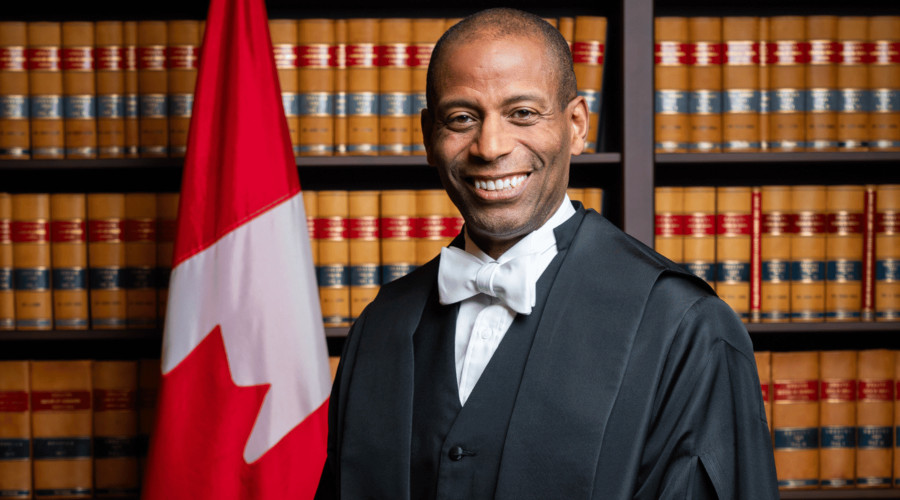
 By
By 




